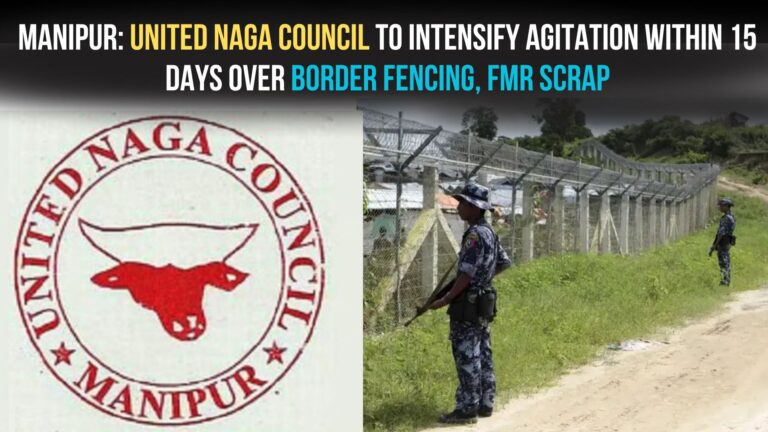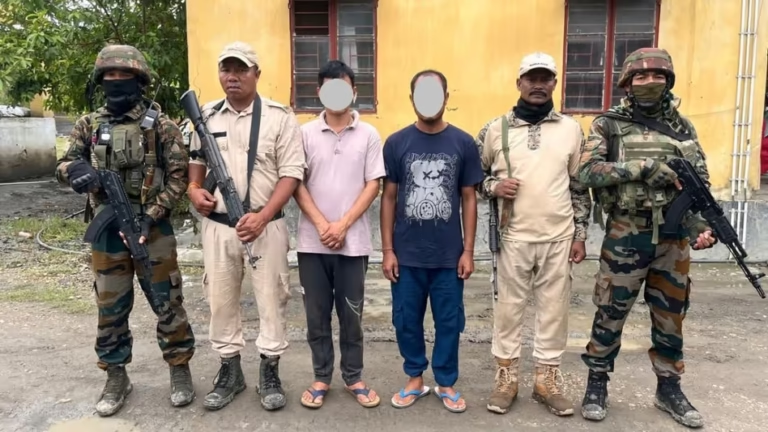Security Forces Strike Back: Destroying Illicit Poppy Cultivation and Arresting a Suspect with Banned Drugs
Short Summary
Security forces have executed a major crackdown by destroying illicit poppy cultivation sites and arresting an individual found in possession of banned drugs. This decisive action targets illegal narcotics production and trafficking, highlighting the commitment of law enforcement to dismantle drug networks and restore safety and order in the region.
In recent developments that have sent shockwaves through the local and national law enforcement communities, security forces have successfully dismantled a major illicit poppy cultivation operation. Alongside this significant bust, authorities arrested an individual found with banned drugs, marking a robust step in the fight against illegal drug production and trafficking. If you’ve ever wondered how agencies tackle the dark world of illicit narcotics, this story provides a fascinating glimpse into their high-stakes operations.
Introduction: A Bold Move Against Illicit Drug Networks
Have you ever felt the adrenaline rush of a high-stakes chase in an action movie? Well, in real life, security forces are playing out a similar drama as they take on illicit drug operations that threaten communities and national security. Recently, in an operation that underscores their relentless dedication, authorities destroyed hidden poppy fields and nabbed a suspect linked to banned drugs. This isn’t just another day in the news—it’s a clear message that illegal drug cultivation and trafficking won’t be tolerated.
When we talk about poppy cultivation, we’re diving into a world fraught with danger, secrecy, and criminal enterprise. These operations often operate under the radar, using remote locations and sophisticated techniques to avoid detection. However, the recent coordinated strike by security forces demonstrates that no one is truly untouchable in the face of determined law enforcement.
The Background: Understanding Illicit Poppy Cultivation
Poppy cultivation for the production of narcotics is not a new phenomenon. For decades, criminal enterprises have exploited remote lands, where surveillance is minimal and law enforcement is stretched thin, to grow opium poppies. These plants, while having legitimate uses in some countries, are often cultivated illegally to manufacture opiates and other banned substances that fuel drug addiction and crime.
Imagine a hidden garden that thrives in the shadows—this is what illicit poppy fields often resemble. They are typically found in secluded areas, making them difficult to detect and even harder to eradicate. The challenge for security forces is akin to finding a needle in a haystack, except in this case, the needle is a vast network of illegal activities that harm communities and fund other criminal operations.
Historically, such operations have been linked to larger networks that not only produce drugs but also engage in trafficking them across borders. This adds a layer of complexity and international interest, with regional security agencies and even global organizations keeping a close eye on developments. The recent bust is therefore a significant milestone in disrupting these dangerous networks.
Details of the Operation: Step-by-Step Breakdown
The operation that led to the destruction of the illicit poppy cultivation and the subsequent arrest was nothing short of meticulous. Let’s break it down step by step:
- Intelligence Gathering:
The operation kicked off with extensive intelligence work. Security agencies had been monitoring suspicious activities in the region for weeks, if not months. This involved gathering data from local informants, satellite imagery, and undercover operations. The intelligence pointed towards a significant cultivation site, hidden in a remote, rugged area that had long evaded detection. - Planning the Raid:
Once the intelligence was verified, a task force was assembled. This task force comprised various units including local police, specialized narcotics squads, and sometimes even central agencies. The planning phase was critical—security forces had to ensure that every team member understood their role, and that the operation could be executed with minimal risk to civilians. - Execution of the Operation:
On the day of the raid, the operation was launched with precision. Teams moved in under the cover of early morning darkness, using state-of-the-art surveillance and communication tools. The element of surprise was crucial here. Officers quickly secured the perimeter, ensuring that the area was cordoned off to prevent any escape. - Destruction of the Cultivation Site:
Once the site was secured, the task force moved to dismantle the poppy fields. This was a challenging task—not only did they have to physically destroy the crops, but they also had to ensure that no hidden caches of drugs or dangerous chemicals were left behind. In many cases, authorities resort to controlled burns or other methods to ensure the complete destruction of the cultivation. - Arrest of the Suspect:
During the operation, security forces also arrested an individual found in possession of banned drugs. The suspect was apprehended after being identified as a key player in the illegal operation. The arrest wasn’t just a symbolic gesture—it provided authorities with valuable evidence that could help dismantle larger networks involved in drug trafficking. - Post-Operation Analysis:
After the operation, authorities conducted a thorough analysis. This included forensic investigations, mapping of the destroyed cultivation site, and interrogations of the suspect. The data gathered from this analysis is expected to shed light on the broader network involved in the illicit drug trade, potentially leading to further arrests and operations.
Each of these steps highlights the meticulous planning and execution that goes into such operations. It’s a high-risk endeavor, requiring a blend of intelligence, bravery, and strategic acumen.
The Significance of Destroying Illicit Poppy Cultivation
Why is the destruction of illicit poppy cultivation such a big deal? Well, let’s think of it this way: if you cut off the head of a snake, the snake’s venomous bite is no longer a threat. Similarly, by destroying the cultivation sites, security forces are essentially removing a major source of illegal narcotics from circulation.
- Disrupting Criminal Networks:
Illicit poppy fields are the breeding grounds for the production of opiates. By eradicating these fields, law enforcement deals a heavy blow to the supply chain that fuels the drug trade. This disruption not only affects local drug markets but also impacts international trafficking networks. - Preventing Addiction and Crime:
Drugs produced from poppies, particularly opiates, are highly addictive and have devastating social and health impacts. Removing these drugs from the market helps prevent addiction, reduces drug-related crimes, and ultimately saves lives. - Strengthening Law Enforcement Credibility:
Successful operations like these bolster public trust in law enforcement agencies. When communities see that the authorities are taking decisive action against criminal elements, it instills a sense of safety and reassurance. - Economic Impact:
Illicit drug trade often diverts funds into illegal channels, undermining legitimate economic activities. By curbing these operations, the government can redirect resources towards developmental projects that benefit society as a whole. - International Implications:
Drug trafficking isn’t confined by national borders. The dismantling of a major illicit cultivation site sends ripples across international networks, potentially disrupting global supply chains of illegal narcotics.
In short, the destruction of these poppy fields is a strategic victory in the broader battle against illegal drug production and trafficking.
Unpacking the Arrest: What It Means for the Drug Trade
The arrest of the suspect in possession of banned drugs is as significant as the destruction of the cultivation site itself. Let’s take a closer look at why this arrest matters:
- A Window into the Network:
The individual apprehended is believed to be linked to a larger network involved in drug trafficking. His arrest opens up avenues for deeper investigations, which may lead to more arrests and ultimately, a comprehensive dismantling of the network. - Deterrence Factor:
Arrests like this serve as a stern warning to others involved in the drug trade. Knowing that security forces are actively pursuing and apprehending key players can deter potential criminals from engaging in similar activities. - Evidence Collection:
The suspect’s arrest is not just about removing one individual from the streets. It’s about gathering evidence. The seized items, documents, and digital data can provide critical insights into how these illicit operations are run, helping law enforcement prevent future crimes. - Legal and Judicial Impact:
The case will likely go through the judicial system, setting a precedent for future prosecutions. This not only reinforces the rule of law but also highlights the effectiveness of the current legal framework in dealing with narcotics-related crimes.
Imagine a domino effect: one arrest leads to more clues, which lead to further arrests, and eventually, the entire network crumbles. This is the hope behind such operations—a ripple effect that weakens the criminal enterprise from multiple angles.
Challenges in Combating Illicit Cultivation and Drug Trafficking
Despite the recent success, the battle against illicit poppy cultivation and drug trafficking is fraught with challenges. Here are some of the hurdles that law enforcement agencies continue to face:
- Remote and Rugged Terrain:
Illicit cultivation sites are often located in hard-to-reach areas. Dense forests, rugged hills, and isolated regions provide perfect cover for criminal enterprises. This geographical challenge makes surveillance and rapid response difficult. - Sophisticated Criminal Networks:
These networks are well-funded and highly organized. They often employ advanced technologies and counter-surveillance methods to evade detection. This level of sophistication requires security forces to constantly upgrade their tactics and tools. - Corruption and Collusion:
In some cases, local corruption can impede operations. When criminal elements manage to infiltrate or influence local authorities, it creates significant obstacles in the fight against illegal drug trade. Maintaining integrity within the ranks is, therefore, crucial. - Legal Loopholes:
Despite stringent laws, criminals often exploit legal loopholes to continue their operations. Constant updates to legislation and strict enforcement are necessary to stay ahead of these tactics. - International Dimensions:
Drug trafficking networks frequently operate across borders. This adds a layer of complexity, as coordination with international agencies becomes essential. Cross-border intelligence sharing and joint operations are often required to tackle the problem effectively.
Each challenge calls for a combination of innovation, persistence, and cooperation among various agencies. The recent successes are a testament to the progress made, but they also serve as a reminder that the war on drugs is an ongoing battle that requires constant vigilance.
Technological Innovations and Their Role in the Operation
In today’s digital age, technology is playing an increasingly pivotal role in combating illicit activities. The recent operation is a perfect example of how cutting-edge technology aids in law enforcement efforts:
- Satellite Imagery and Drones:
The use of satellite imagery and drones has revolutionized how authorities monitor remote areas. These tools help in identifying suspicious activities and mapping out remote cultivation sites with precision. - Data Analytics:
With the aid of sophisticated data analytics, security agencies can process large volumes of information to detect patterns and predict potential hotspots for illegal activities. This intelligence-driven approach minimizes the guesswork and maximizes operational efficiency. - Surveillance Equipment:
Advanced surveillance equipment, including high-resolution cameras and infrared sensors, provides real-time insights during operations. This ensures that security forces can adapt quickly to changing situations on the ground. - Communication Technologies:
Secure communication channels allow for seamless coordination among different units involved in the operation. This is crucial for maintaining the element of surprise and ensuring the safety of both officers and civilians.
These technological advancements not only enhance the effectiveness of operations but also provide a significant edge in the fight against organized crime. They enable authorities to stay one step ahead of criminals who are constantly evolving their methods.
The Socio-Economic Impact of Illicit Drug Trade
Beyond the immediate security concerns, illicit poppy cultivation and the drug trade have far-reaching socio-economic implications. Let’s explore how these activities affect society:
- Health and Social Issues:
The proliferation of banned drugs leads to widespread addiction, which in turn has devastating effects on families and communities. Addiction drives social problems such as increased crime rates, broken relationships, and long-term health crises. - Economic Drain:
Money that flows into the illegal drug trade often bypasses legitimate economic channels. This not only undermines the formal economy but also deprives governments of much-needed tax revenue that could be used for public welfare. - Impact on Youth:
Young people are often the most vulnerable to the lure of drugs. With illicit cultivation feeding the drug market, communities face the risk of losing their future generations to addiction and crime. Addressing the root causes of drug abuse becomes critical for the long-term well-being of society. - Stigma and Social Fragmentation:
Areas plagued by drug trafficking often face social stigmatization, which hampers community development and creates divisions among residents. Restoring a sense of safety and unity is essential for rebuilding these communities.
Understanding these broader impacts is key to appreciating why operations targeting illicit cultivation and drug trafficking are so crucial. They are not just about arresting criminals—they’re about preserving the social and economic fabric of our communities.
Community and Government Response
When security forces make a decisive move against illicit drug operations, the reaction from the community and government can be profound:
- Public Confidence:
The visible action against illegal activities often boosts public confidence in law enforcement. Communities that have long suffered under the shadow of drug-related violence and crime find renewed hope in the promise of safer streets and neighborhoods. - Government Initiatives:
Following major busts, governments are often spurred to launch additional initiatives aimed at curbing the drug trade. These might include stricter regulations, enhanced surveillance measures, and community outreach programs to educate the public about the dangers of drug abuse. - Collaborative Efforts:
A successful operation is rarely the work of a single entity. It is the result of collaboration between various agencies—local police, intelligence units, and even international partners. This unified front is crucial for addressing complex issues that cross regional and national boundaries. - Future Preventive Measures:
The lessons learned from such operations lead to better policies and more effective strategies in the future. Law enforcement agencies constantly refine their techniques and adapt their methods to stay ahead of criminals, ensuring that the cycle of illegal drug production is continuously broken.
Future Prospects in the Fight Against Illicit Drug Networks
The recent successes in dismantling illicit poppy cultivation and arresting a key suspect are not the end of the battle—they’re a stepping stone toward a broader strategy to combat the illegal drug trade. So, what can we expect moving forward?
- Increased Intelligence Sharing:
As criminal networks become more sophisticated, intelligence sharing between local, national, and international agencies will be critical. Enhanced cooperation can lead to preemptive strikes on emerging threats, preventing operations before they fully take shape. - Legislative Reforms:
To keep pace with the evolving tactics of drug traffickers, governments may push for legislative reforms that close loopholes and empower law enforcement agencies. These legal updates are essential for ensuring that the judicial system remains a robust deterrent against organized crime. - Community-Based Programs:
Preventing drug abuse isn’t solely about enforcement—it’s also about education and rehabilitation. Community-based programs can play a vital role in raising awareness, supporting affected families, and providing alternatives for vulnerable populations. - Technological Integration:
Continued investment in technology will further enhance the capabilities of security forces. From real-time monitoring to sophisticated data analytics, technology will remain at the forefront of the fight against illicit drug networks. - Sustainable Economic Development:
Ultimately, curbing the drug trade requires addressing its root causes. Sustainable economic development in affected regions can reduce the allure of illicit activities by providing legitimate opportunities for growth and prosperity.
The path ahead is challenging, but with a comprehensive and multi-faceted approach, the fight against illicit drug networks is one that can be won.
Conclusion
In wrapping up, the recent operation in which security forces destroyed illicit poppy cultivation sites and arrested an individual with banned drugs stands as a landmark achievement in the ongoing battle against illegal drug production and trafficking. This operation was not just a tactical success—it represented a broader commitment to safeguarding communities, restoring public trust, and dismantling the networks that threaten societal well-being.
From the meticulous intelligence gathering and precise execution to the far-reaching implications for law enforcement and community safety, every aspect of this operation underscores the importance of a proactive and collaborative approach. Whether you’re a concerned citizen or someone with a keen interest in how modern law enforcement operates, this case highlights that the fight against illicit activities is both dynamic and relentless.
By leveraging cutting-edge technology, fostering inter-agency cooperation, and addressing the socio-economic roots of the drug trade, security forces are steadily reclaiming control from criminal elements. And while the challenges remain formidable, each successful operation brings us one step closer to a safer, more secure future.
As we look forward, it’s clear that continued vigilance, community engagement, and policy innovation will be the keys to sustaining these hard-won victories. The destruction of illicit poppy fields and the arrest of those who traffic banned drugs send a resounding message: in the battle against illegal narcotics, the forces of law and order are here to stay.
FAQs
- Q: What led to the discovery of the illicit poppy cultivation site?
A: Extensive intelligence gathering, including local informant tips and advanced surveillance techniques, played a crucial role in identifying the remote poppy cultivation site, prompting the swift action by security forces. - Q: How did the security forces manage to destroy the illicit cultivation?
A: The operation involved securing the area, dismantling the poppy fields using controlled methods, and ensuring that all traces of illegal cultivation and associated contraband were completely eradicated. - Q: Why is the seizure of banned drugs significant in this operation?
A: Seizing banned drugs not only disrupts the immediate drug supply but also provides critical evidence that can help trace and dismantle larger trafficking networks, thereby preventing future operations. - Q: How do these operations impact the local community?
A: Such operations enhance community safety by removing a major source of illicit drugs, reduce drug-related crimes, boost public confidence in law enforcement, and pave the way for long-term socio-economic development. - Q: What future measures are expected to strengthen the fight against illicit drug networks?
A: Enhanced intelligence sharing, legislative reforms, continued technological integration, and community-based programs are among the future strategies that will further empower security forces to combat and prevent illicit drug operations.



